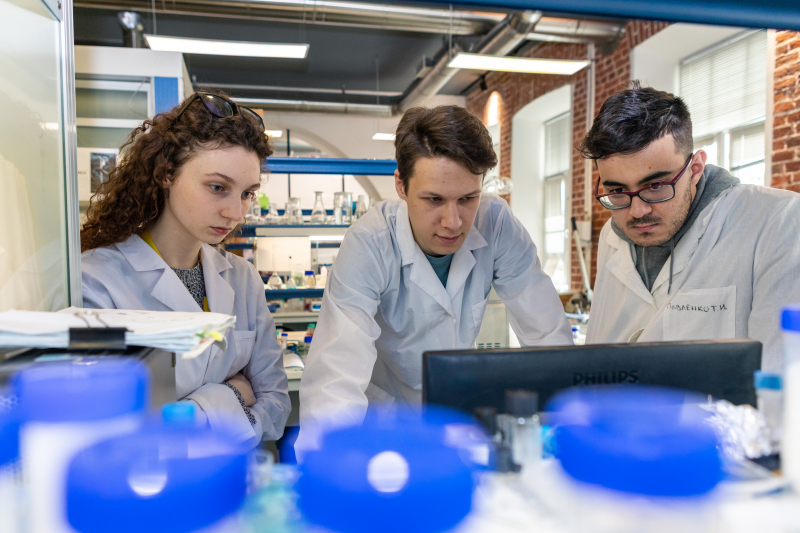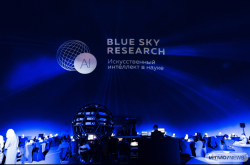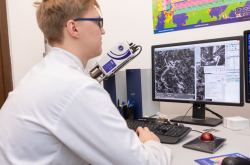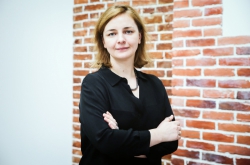Machine learning has significantly evolved over the past few years and found its applications in a wide range of fields, from transportation management to chemistry. Researchers already use such algorithms to tackle complex challenges in chemistry and nanotechnology, improve the existing chemical processes and introduce new ones, as well as predict experimental results when developing novel drugs.
To let students learn more about these fields, ITMO University is hosting DataCon – a free workshop and hackathon, which will introduce them to the university’s cutting-edge projects in AI, machine learning, and nanomedicine.
“Digital technologies advance rapidly, including in nanomedicine. With this event, we aim to attract more school and university students to our state-of-the-art projects. DataCon will consist of a workshop and a hackathon, making it beneficial for both beginners and more experienced participants. We welcome all students, regardless of their age and experience,” comments Aleksandra Falchevskaya, an organizer of DataCon and a first-year PhD student at ITMO’s ChemBio Cluster.
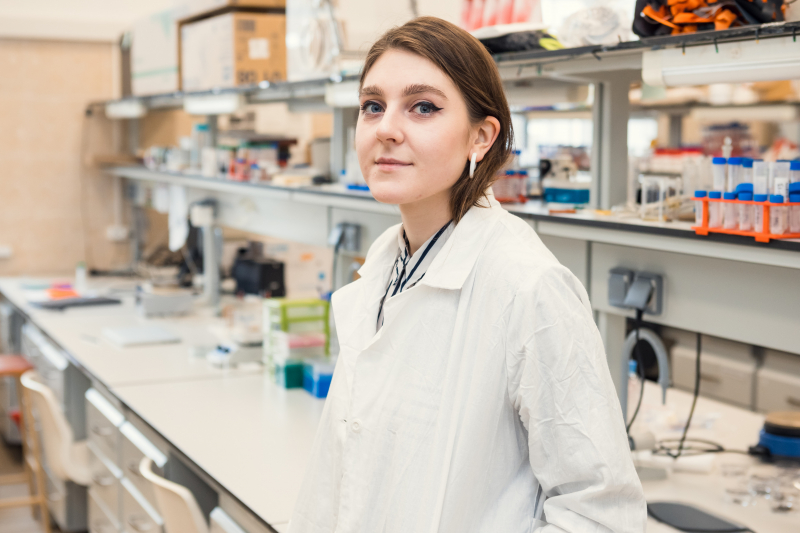
Aleksandra Falchevskaya. Photo by Dmitry Grigoryev / ITMO.NEWS
About DataCon
During the workshop (July 19-28), ITMO lecturers will speak about the current AI milestones in science and industry and explain how these technologies can be applied in chemistry, biology, and nanomedicine.
“Participants will learn more about AI in chemistry and industry and acquire new skills and experience of working with AI databases and algorithms in chemistry. The lectures and practical classes are adapted for students with various backgrounds and cover all the topics necessary for participating in the hackathon and doing an internship at ITMO’s Center for Artificial Intelligence in Chemistry,” adds Julia Razlivina, an organizer and expert of DataCon and a second-year Master’s student at ITMO’s ChemBio Cluster.
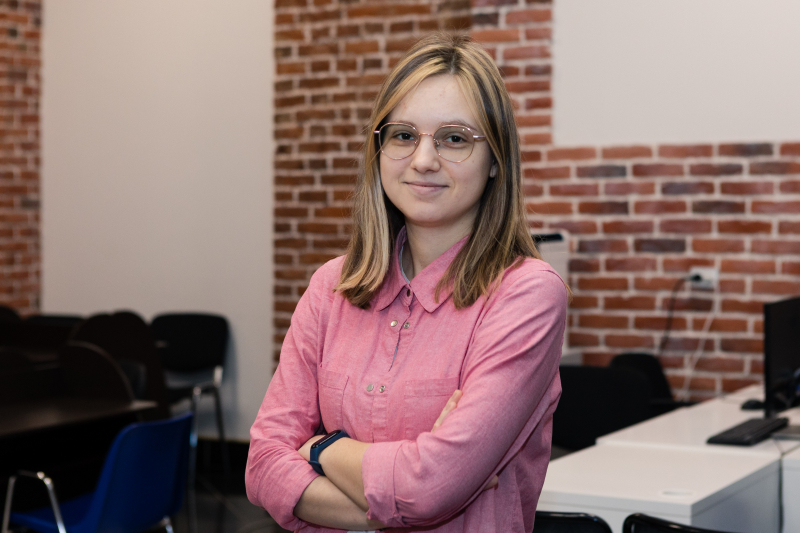
Julia Razlivina. Photo by Dmitry Grigoryev / ITMO.NEWS
The university’s experts will show students how to work with databases and machine learning algorithms, as well as create a virtual space for collaborative coding.
As noted by Nikita Serov, a speaker at DataCon and a second-year PhD student at ITMO’s ChemBio Cluster, participants will discover which tools can replace traditional approaches and solve pressing issues that have long puzzled scientists.
During lectures, the experts will explain how to build chemical databases, test, visualize, and analyze them automatically, as well as use this data to predict the results of studies, which have not yet been carried out and are missing in the database. Whereas the practical classes will be an excellent chance for participants to apply their knowledge and find the best possible solution.
“Traditional approaches are no longer good enough to solve problems that chemists encounter today. Which molecules can destroy cancer cells in certain organs or tissues without harming the healthy ones? How can we synthesize nanoparticles of a certain shape and size? Today’s science requires specialists to abandon the trial and error method and adopt the opposite approach, which participants will master at the event,” says Nikita Serov.
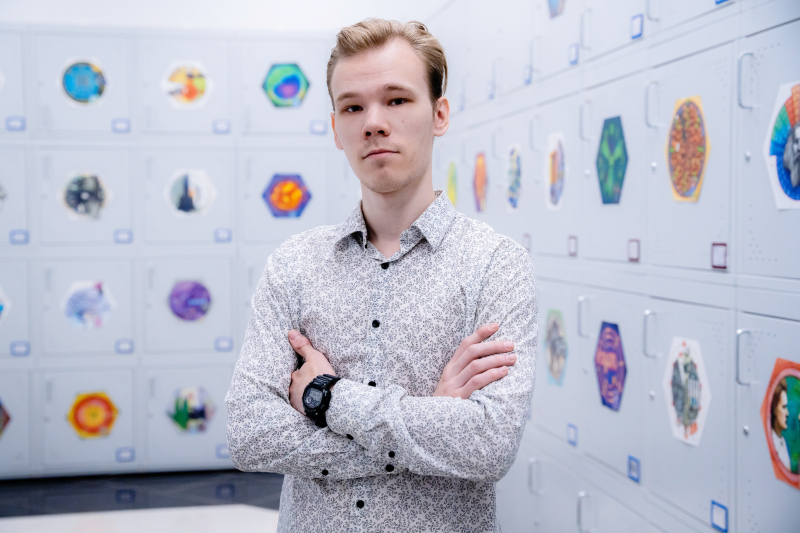
Nikita Serov. Photo by Dmitry Grigoryev / ITMO.NEWS
The main task of the hackathon (July 29 - August 1) will be to develop a model capable of predicting biological properties of nanoparticles based on real-world data. Participants will have to submit their presentations in advance and present their projects to the expert board via Discord.
“We will select the winners based on multiple criteria. For instance, we will take into account both our first impressions and the results of a more thorough analysis. In addition to the presentation’s transparency, simplicity, and clarity, we will also analyze the accuracy and interpretability of the model, as well as the quality of data preprocessing and analysis, and code readability and organization,” explains Aleksandra Falchevskaya.
Winners will be announced within two weeks after DataCon. While school students who will take the first place will receive additional points when applying for ITMO’s Bachelor’s programs, Bachelor’s students will be able enroll into ITMO’s Master’s program in chemistry and artificial intelligence without any entrance exams. Participants who will successfully complete both the workshop and the hackathon will be offered an internship in the field of data-driven nanomedicine at SCAMT’s Center for Artificial Intelligence in Chemistry.
How to participate
DataCon is designed primarily for 9-11th grade and Bachelor’s students who can read in English, are interested in chemistry, nanomedicine, and nanoengineering, as well as have a background in programming, AI, machine learning, and big data.
To participate in the event, students should submit their letters of motivation (explaining why they want to take part in DataCon) and portfolios (featuring their personal achievements, including certificates of participation in similar hackathons, schools, conferences, and contests in natural sciences and AI) on the official website.
There are two deadline options for participants:
-
July 19 – for those who want to attend expert lectures and improve their digital skills at the workshop. Participants do not need to register for the hackathon separately and will learn whether they’ve made it to the contest no later than on July 5.
-
July 27 – for those who have a background in programming and chemistry and want to skip the workshop. All participants, regardless of the chosen format, will be eligible to compete for the hackathon’s prizes.
DataCon is supported by the Priority 2030 program.
